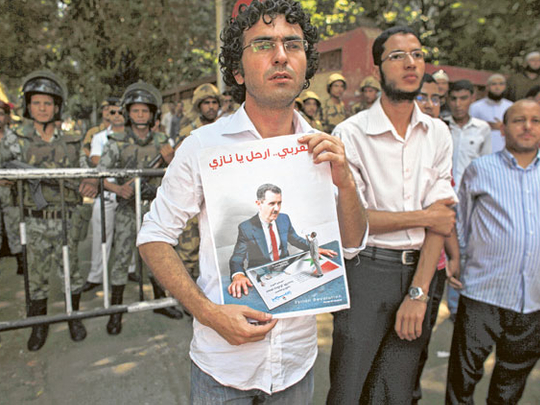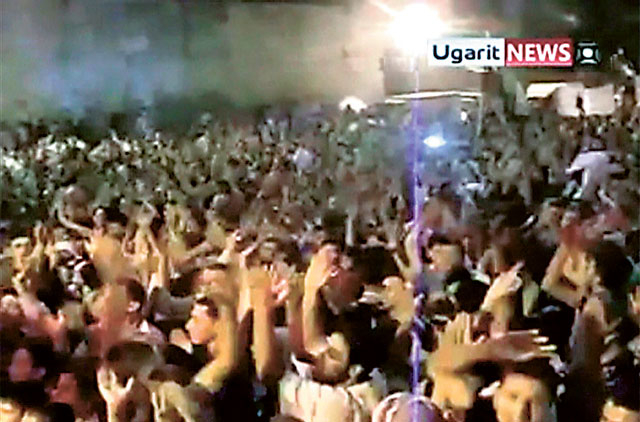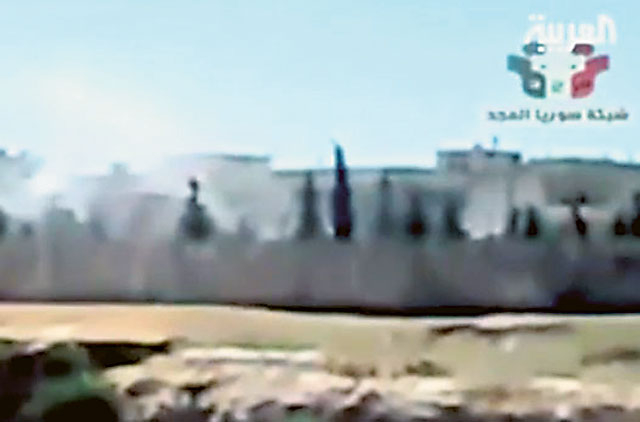
Dubai: Many of Syria's Arab allies have joined in the criticism of how the country is dealing with anti-regime protests.
Other Arab nations have preferred the wait and watch approach stance, and their concerns echo those of the six members of the Gulf Cooperation Council (GCC) about the excessive use of force against the civilians, leaving Damascus with fewer allies in the current crisis, analysts said.
It is also expected to be followed in the near future by measures aimed at tightening the grip on the Syrian regime, including more restrictive stop and searches of cargoes heading to the country, they added.
"We will start seeing more pressure [on Syria] but of a different nature," said Abdulaziz Sager, chairman of the Gulf Research Centre.
"There will more resolutions in two directions. The first to pressure the political elite in Syria, and the second in more restrictive security searches, embargo on ports, and keeping a close watch on oil companies. Also from the Iraqi side, there will be more restrictions," Sager told Gulf News in an interview from Saudi Arabia.
Iranian influence
So far, if it was not for the strong Iranian influence in Iraq, there would have been tighter Iraqi measures along the borders with Syria, Sager noted.
Already, the US and the European Union have imposed a series of sanctions against some senior Syrian officials and relatives of President Bashar Al Assad.
While many western countries are waiting to impose new punishing measures, the GCC expressed concern over the "mounting violence and the excessive use of force which resulted in killing and wounding large numbers".
The GCC statement comes as a result of several factors, including the increasing number of protesters, the expansion of the demonstrations' area and the "excessive use of violence", Sager said.
"There is also concern over the internal situation in Syria" among the GCC countries, he added.
Equally important is that "there is internationalisation for the [Syrian] issue," Sager added.
"There is a position from the Security Council. There is an American position. There is a Chinese position. There is a Russian position and another by the European Union.
"There is an international stance that is agreed upon and it shows upset over the actions of the Syrian government."
A Syrian official expressed his country's "regret" over the GCC statement, which "completely ignored the information and facts presented by Syria on the killing and sabotage acts committed by armed terrorist groups seeking to undermine the homeland's sovereignty and security".
Syria's interests
"Overcoming the current situation of violence and the real desire to serve Syria's interest requires that the Arabs in the GCC call for stopping sabotage acts and condemning armed violence of groups which don't have good intentions for Syria, in addition to giving the space and time needed to translate reforms into reality," the official said in a statement carried by the Syrian official news agency yesterday.
While political analysts in Damascus agree that Syria's foreign relations are currently in a "bad situation", some believe it is difficult to predict what is next on both external and internal levels.
Corner stone
The GCC position came after the recent communiqué by the Security Council on Syria, which was "a corner stone for any future resolutions on Syria", said Thabet Salem.
The communique has laid the foundation for any stance or move against Syria after it broke the "barrier", he said, in reference to the UN Security Council last Wednesday, which condemned the Syrian government's actions, but has not entertained a resolution or any proposals to act on the crisis.
"It has become much easier for those countries to build up on this communiqué and that explains why the Gulf countries have issued their statement," Salem told Gulf News.















